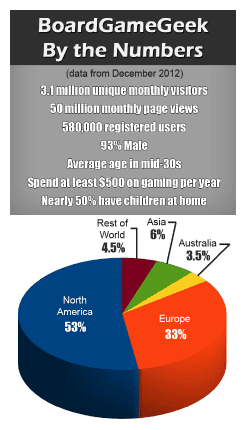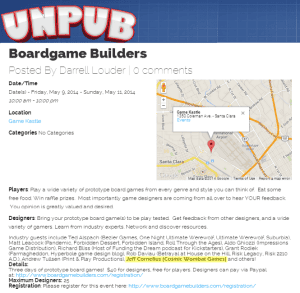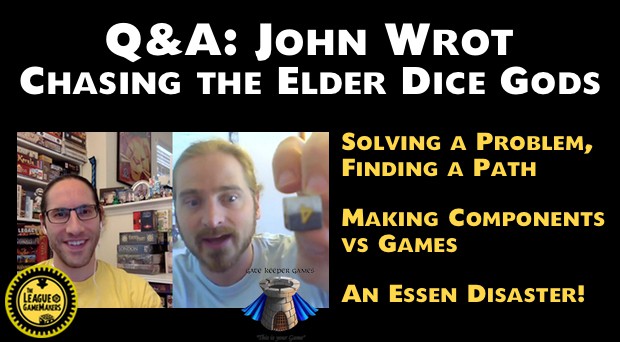
So, you’re a small time game designer or publisher. How do you get bigger? How do you increase your presence within the industry?
Answer – act like the person you want to be and you will become the person you want to be.
STEP 1: KNOW YOUR INDUSTRY
The quickest way to become that “bigger” publisher/designer you want to be is to find others within the industry who are doing the same things and doing them well. Get to know these people and companies. Learn how they conduct their business. Find out what makes them successful. Then emulate what you can from them.
The key here is to learn as much as you can but find a balance with gaining experience as well. You don’t want your “gaining knowledge” to become so all-encompassing that it prevents you from making a move on your own and striking out with your own design. Knowledge can be gained from experience as well as from learning from others in the industry. Find a balance between both.
STEP 2: INTERACT WITH YOUR INDUSTRY
Get out of your comfort zone. Attend conventions; demo your game to fellow designers as well as prospective customers. One thing that I did that I am extremely glad I did is participate in the Publisher Speed Dating event at Gen Con. Cosmic Wombat Games was also a sponsor of the Card and Board Game Designers Meetup. When I first heard about these events, my initial thought was, “why would a small 2 person shop like mine get involved with these? Surely, these are meant for larger companies who can put the time and money into them”. Then I realized it didn’t matter, I could do these because no one there knew anything about the size of my company and these events would be about building my name.

I would encourage you to find ways to build your name whether it’s through in-person events like Protospiel or other conventions, or through online forums like Facebook or Board Game Designers Forum.
STEP 3: STOP THINKING IN TERMS OF MONEY SPENT VS. MONEY EARNED
 This line of thinking comes up a lot when talking about buying ads on Boardgamegeek or building high quality prototypes to send to reviewers or getting a booth at conventions. Many designers/publishers are hesitant to put money into something for which they will not see an immediate return on investment. I understand that for most of us in the independent game design/publishing business, money can be an issue. However, if you want to get into this industry and you want to make it “big”, you need to accept the fact that you will spend some money for which you will not see an immediate return on investment.
This line of thinking comes up a lot when talking about buying ads on Boardgamegeek or building high quality prototypes to send to reviewers or getting a booth at conventions. Many designers/publishers are hesitant to put money into something for which they will not see an immediate return on investment. I understand that for most of us in the independent game design/publishing business, money can be an issue. However, if you want to get into this industry and you want to make it “big”, you need to accept the fact that you will spend some money for which you will not see an immediate return on investment.
Everything you do, whether it’s putting ads up on BGG, printing postcards for a convention, donating prototype copies to 20 different game libraries, etc is one small way of getting your name out there. In all likelihood, none of these methods by themselves will give you the return you are looking for but what you are looking for is building a critical mass of information about your brand. Jamey Stegmaier explains it really well in his post on advertising. You are looking for someone to see your ad on BGG, then happen across a post on Facebook showing the art for your game, then run across the game page on BGG because it was linked in a forum, and finally when they see your postcard at their local con or see the game in the game library they hit a tipping point and are ready to buy, play, back on Kickstarter, etc.
STEP 4: BE HONEST
Finally, the most important thing is to be honest with people. This may come as a surprise since I am saying “act bigger than you are” which seems to be dishonest at the core, but what I mean is that as you are acting bigger than you are, you need to respond to people in an honest manner. If someone wants to have your company publish their game be honest with them about timelines, royalties, etc. If a publisher sees you at a designer event and would like to talk to you about your prototype, be honest about what stage it is really in and what your plans for it are.
The interesting thing about all this is that as you begin to “act bigger than you are”, you will quickly realize that you are bigger than you were. Your reputation in the industry will grow. People will know you for what you bring to the community. Your brand will be established. Which is really the ultimate goal. Who knows, someday this may happen to you.









